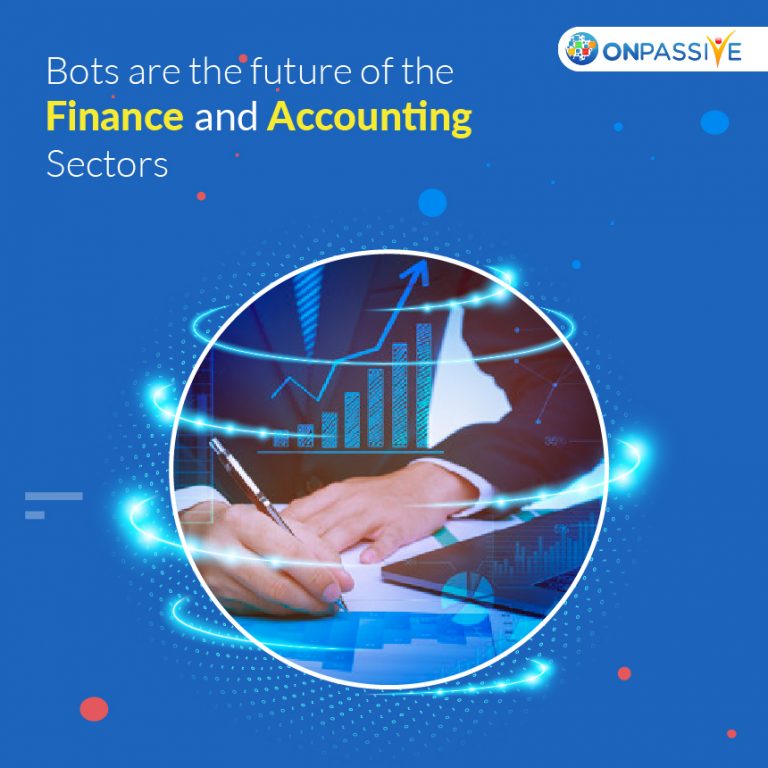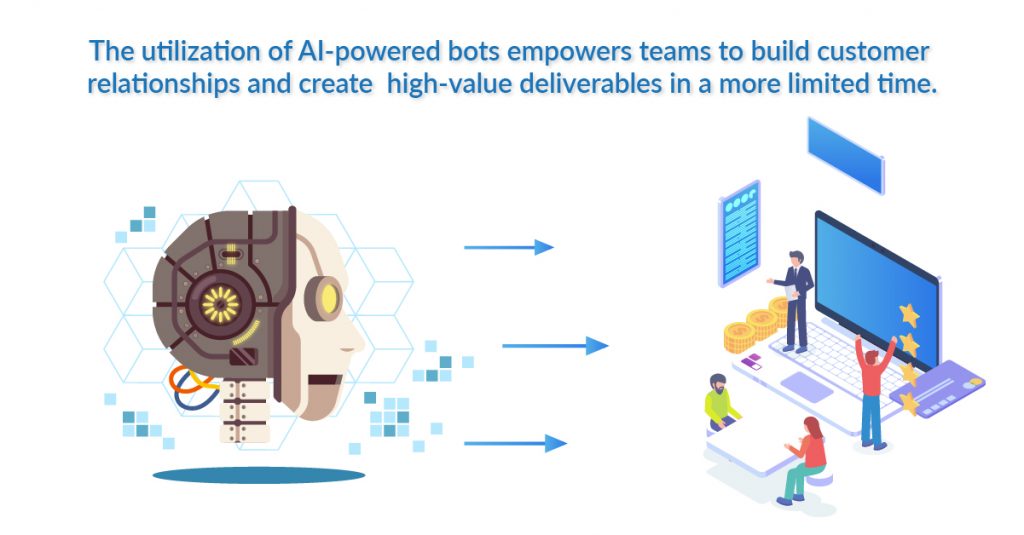
Today’s finance departments are required to do significantly more than handling and processing transactions and entering data. By performing tedious, repetitive accounting tasks, software robots (‘bots’) free individuals to apply their creativity and intellect to deliver business insights – so they can transform finance into a more valuable, vital part of the business.
Robo accounting is robotic process automation for accounting, i.e., the utilization of software robots (bots) to automate tedious tasks, such as processing transactions and information. By consolidating bots with smarts from machine learning and AI platforms, they will have the option to take on progressively complex tasks in the future.
Automation and artificial intelligence are ready to reshape finance work. Realizing what to automate and dealing with the disruption can prompt a new era of productivity and performance.
On the positive side:
Bots are a software application that runs computerized tasks (contents) over the Web.
Bots perform tasks that are both straightforward and fundamentally monotonous, at a lot higher rate than would be possible for a human alone
Some bots are “acceptable and good” – e.g., search engine spiders – while others can be utilized to launch malignant and harsh attacks, most eminently, in political campaigns.
On the drawback:
- The most broadly utilized anti-bot strategy is CAPTCHA, which is a type of Turing test used to recognize a human user and a less-sophisticated AI-powered bot.
- You’ve presumably done this where you have to coordinate all the photos of scaffolds or all the images containing a blossom to approve your login to a web site.
- Security can be faulty with the wrong authoring tool set.
- Interruption by the Bot could be an irritation instead of assistance.
5 Reasons why robots are the future of finance and bookkeeping sectors:
Artificial Intelligence in accounting is gradually acquiring pace; practically in large enterprises. The potential, notwithstanding, is noteworthy for smaller companies as well.
- Work more precisely: as bots consistently adhere to the guidelines and don’t make any mistakes, automation will essentially diminish the error margin.
- Gain productivity: software robots perform tedious, redundant tasks quickly and are accessible 24/7.
- Boost consistency and compliance: every task the bots perform, is detectable and traceable – a clear plus during audits.
- Cut costs: improved profitability and fewer errors will help you save costs. Besides, the ROI of Artificial Intelligence in accounting is shockingly quick.
- Gain an edge: via automating processes, you can reassign your personnel to tasks that add genuine worth – and generate revenue – to the organization.

Customer Administration: Quite possibly, the most mainstream methods of utilizing chatbots in bookkeeping are addressing clients’ inquiries. Most clients pose essential and repetitive questions – a chatbot can undoubtedly communicate with them and resolve their problems without any human assistance.
One basic model helps individuals doing taxes, as the majority of them don’t think about the standards and guidelines. Numerous services use chatbots to answer questions related to individual and business taxes.
From repetitive errands to the deep intelligence
Artificial Intelligence in accounting has been through several innovative and technological revolutions; after Excel came to the cloud’s software tools and accounting. Today, bots are progressively acquiring traction in accounting offices. In the coming years, the level of insight is expected to rise drastically.
Robotic process automation leverages the computing power of software to mechanize high-volume, error-prone, repeatable errands. At this stage, software bots copy human activity – they are not clever all alone.
Machine learning includes the first level of PC intelligence: bots figure out how to make predictions based on patterns and connections in large amounts of – structured – information.
Cognitive computing frameworks attempt to reenact human thought processes with the point of settling on high-level decisions in complex circumstances (based on unstructured data: neural networks, NLP, context-oriented awareness and sentiment examination).
Artificial intelligence systems add real intelligence to machines: the bots gain proficiency with the variables they should focus on from humans to make decisions and provide all alone.
Conclusion:
The new generation of accounting and finance experts is working in collaborative and engaging environments. The utilization of AI technologies empowers teams to build customer relationships and create high-value deliverables in a more limited time.



David Bakau
3 years ago